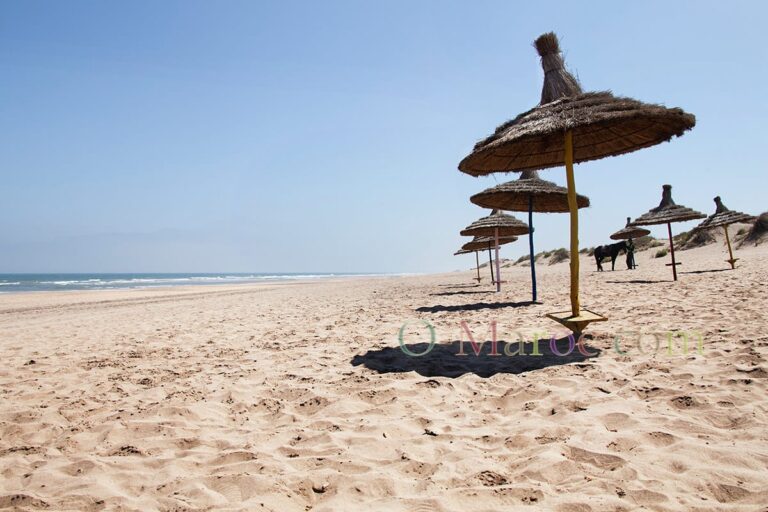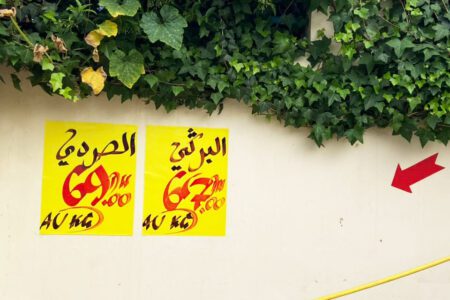Unfortunately, alongside the external risks to Moroccan tourism, which the country can only “suffer”, there are also a number of internal problems that are slowly undermining Morocco as a destination.
This can be seen on travellers’ forums, with many complaints about the lack of quality of the welcome, prices that are too high, and even harassment by guides and fake guides. This mainly affects Marrakesh and, to a lesser extent, Agadir.
Vision 2010, vision 2020, Azur plan, objectives and achievements
We can also see it in the visitor statistics. When you put all the media’s enthusiastic proclamations about the number of overnight stays in Morocco together, you get the impression that tourism is exponential, and that we’ll soon have fifty million tourists. Of course, this is not the case. The ten million tourists in the 2010 vision have almost been reached, but that’s taking into account MREs.
The Azur plan was a flop, generating some well-felt royal anger (particularly in Taghazout). As for Vision 2020, which aimed to make tourism Morocco’s number one industry, it must, amha, be seriously muted following the ‘coronavirus’ experience.
That’s not to say that these plans weren’t useful; Vision 2010 did indeed help to develop the sector and bring in foreign currency for Morocco. Many more people earn their living from tourism than under Hassan II.
But these plans have not been a panacea, and many problems remain.
Lack of quality infrastructure
In Morocco, hotels are built but not really maintained. You don’t renovate, the hotel ages, loses customers, so you have less money, so you don’t renovate. Admittedly, we’ve come a long way. In the days of Hassan II, the hotel sector was essentially public, but a large part of it was privatised at the end of the 1990s.
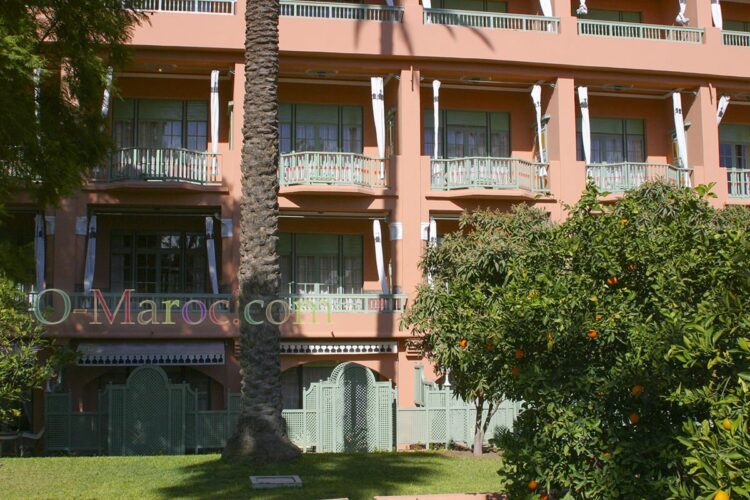
With the exception of the Mamounia, which was renovated for the first time in 2009 by Jacques Garcia (after three years of work), and for the second time ‘now’ (the closure was scheduled from 25 May to 20 September, a much shorter period, for work on the restaurants and kitchen). It has to be said that the hotel had fallen asleep; I stayed there in 2004 and was impressed – in a bad way – by the worn-out carpets in the corridors.
In Agadir, on the other hand, the situation has become so critical that the city itself has decided to invest by covering 30% of the cost of renovating 10,000 rooms.
The real problem remains the poor quality of the rankings: a 4* Moroccan hotel is, in most cases, a poor 3* elsewhere, or even a 2*.
Value for money
This problem stems in part from the previous one, but not exclusively. Flights are expensive, especially if you’re not from Paris. So is the cost of transport. Cars are imported and expensive, and Morocco has no oil. These are the first two items of expenditure on a tour.
For mass or backpacker tourism, Moroccan prices are extremely high.
For more upmarket tourism, without going as far as luxury tourism, the quality of service and facilities is incomparable – in a bad way – to what is on offer in destinations such as Turkey or Croatia. I even have Moroccan friends who are tourism providers who recognise this.
So, of course, Morocco is the “most Bewtiful country in the world“, but that’s not enough. I haven’t found any statistics on multi-stays, the number of people who come to Morocco several times is high, but I also see a lot of people, on forums, declaring that they won’t be going back, disappointed after their first stay.
Pollution is improving
Morocco has unquestionably taken an going green shift, and the COP 22 in Marrakesh is proof of this. The fight against pollution is one of its objectives, and the results are “mixed”.
Things are improving. But that’s not all… rubbish collection management is still inadequate, open-air dumps ‘unload’ at the slightest gust of wind, black plastic bags have been banned, but we still see them (how can you sell alcohol in a transparent bag?) and their replacements, in other colours and materials, still litter the roads.
In many small hotels, you have to run the water in the shower for about ten minutes before it gets hot.
Still on the subject of water quality, there are Blue Flag beaches and others…
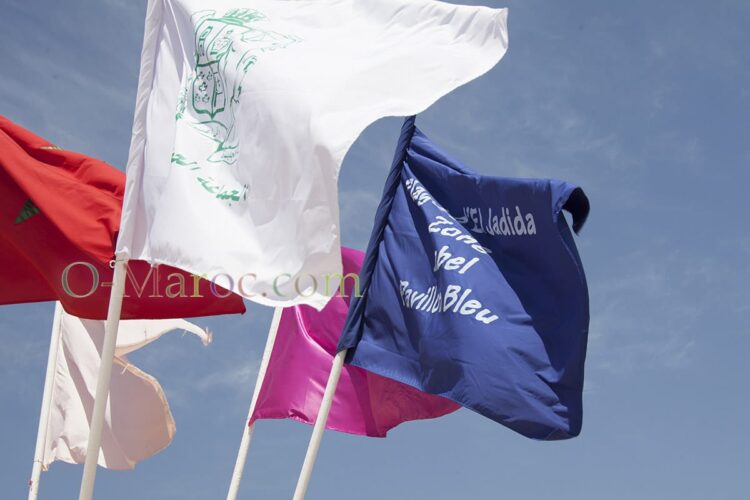
In short, selling ecotourism in Morocco without cognitive dissonance is difficult!
The difficulty of domestic tourism
This is the most regular refrain from the Ministry of Tourism (and the national tourism federation has just issued a heart-rending plea for Moroccans to “tour” within the country. Operations such as Kounouz Biladi are carried out regularly, and Moroccan residents are entitled to discounts in hotels.
However, domestic tourism has not taken off, apart from weekends in Mazagan for residents of Casablanca, Marrakesh and Agadir. In ten years of tourism, I’ve never seen a Moroccan resident in the south.
Why isn’t it working? In my opinion, there are several very different reasons:
- Moroccan families are larger than European families, with a lower standard of living; a two-week holiday for six people is very expensive!
- When they go ‘to bled’, Moroccan families go to stay with family or friends, because of the price, but above all because you don’t insult people by not going to their homes.
- for others, Moroccan authenticity is something to be admired from afar; unlike European tourists, we lived there only a short time ago, and we’re looking forward to more modern experiences, not going back to being a “bledard”.
- lastly, Moroccans are rather “pampered” when it comes to comfort, living conditions in tents or self-catering cottages, eating food that you haven’t prepared… it’s scary (I have a friend who prefers to eat at MacDo in Casa, because “at least there, she’s sure of the hygiene”).
The rise of intolerances
What I’m referring to is not terrorism, but the rise in harassment of women, for example.
This intolerance is nothing new; at the bottom of the page you’ll find a link to an old discussion, from 2008, in which we spoke kindly of “kicking the French out, otherwise we’ll have to kick them in the riads”.
It has become increasingly difficult for a woman alone to walk around without being harassed. Every summer there are unpleasant incidents where women are threatened because their dresses are too short. On public beaches, particularly in Casablanca, wearing a swimming costume attracts a swarm of reproving males who take the opportunity to teach you a lesson and have a good laugh.
I don’t think Morocco was ever a land of freedom where women walked around without veils, as some people say rewriting history. But in fifteen years, things have changed, and that can make some holidays very unpleasant.
An opportunity for you: the lack of variety on offer
A limited range of sports
Finally, the variety of experiences on offer is not very wide. Apart from 4x4s, surfing in the dunes and on the beach, sand yachting, jet-skiing, golf, hiking, yoga and sunbathing, there isn’t much to do.
Centres like Terres d'Amanar are still the exception, canoeing is confidential and so is diving. What’s more, given the scarcity of hyperbaric chambers (I found only one, in El Hoceima, in a professional organisation), I wouldn’t like to dive in Morocco, only to have to be transported far away in the event of an accident…
Riders can easily organise a horse-riding holiday, but apart from the two-hour stroll along the beach that some hotels offer, it will be almost impossible for a holidaymaker to begin his or her introduction to horse-riding.
A lack of cultural offerings
This is a sector where there have been clear improvements in recent years.
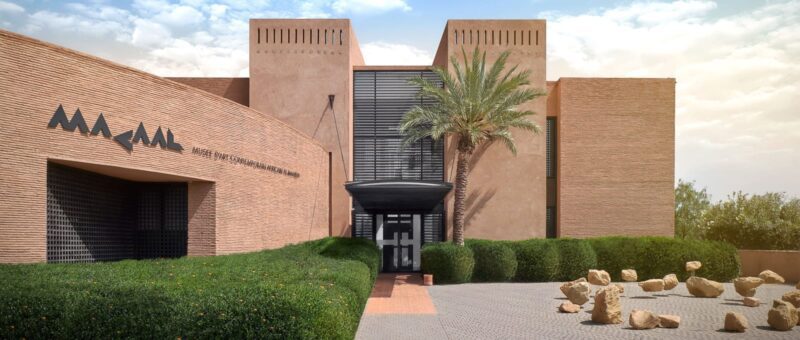
In Marrakesh and Rabat in particular, the opening/development of several museums has widened the scope, with the Mohamed VI Museum, the House of Photography and the Museum of Contemporary African Art, among others. If you really want to look, there are plenty of places to visit, apart from the two or three must-see museums that all the tour operators offer. It’s all in the “if you really want to look“, because finding the information isn’t easy!
Let’s be honest: for non-specialists, nothing looks more like a kasbah than another kasbah. Few guides really go into the history of a place (do they know it, in fact?), and in return, few tourists push them to the limit. Many monuments are abandoned and in ruins (the state of the kasbah in Télouet is depressing, as is that of the kasbah of Boulaouane ).
There are still cooking and pottery courses, major festivals, moussems whose dates are known at the last minute, and a few cinemas (do you realise that in Ouarzazate, the “Moroccollywood“, there are no cinemas at all?)
Few offerings for children
Apart from hotel/pool or beach breaks, or stays in gites or ecolodges that allow you to enjoy the surrounding countryside, there is very little to offer children. In towns and cities, parks and gardens are few and far between, not always maintained and with no facilities for children. There are still some private parks, such as Crocopark in Agadir, Sindibad in Casablanca or the Oasiria in Marrakesh… they add up, and fill up very quickly during the holiday period.
Vision 2030?
Vision 2020 is now, and it’s off to a bad start.
If there is a vision for 2030, it will have to take all these aspects into account, if we are to position Morocco as a solid, professional tourist destination. I believe that Morocco has benefited a great deal, indirectly, from the Arab Spring and the drop in tourism in Tunisia and Egypt. If it hadn’t benefited from the difficulties faced by its competitors, it probably wouldn’t have achieved the 9.5 million overnight stays.
For the moment, it’s a question of preventing an entire sector from dying. The money that will be injected into this short-term support will no longer be available for infrastructure improvements.
Investing in tourism, on a personal level, requires a well-crafted project that can compensate for some of these weaknesses, that is sufficiently original and professional to make people want to come back, and that targets a clientele that wants to come to Morocco.
Not an easy task…
 A typo or syntax error? You can select the text and hit Ctrl+Enter to send us a message. Thank you! If this post interested you, maybe you can also leave a comment. We'd love to exchange with you !
A typo or syntax error? You can select the text and hit Ctrl+Enter to send us a message. Thank you! If this post interested you, maybe you can also leave a comment. We'd love to exchange with you !

